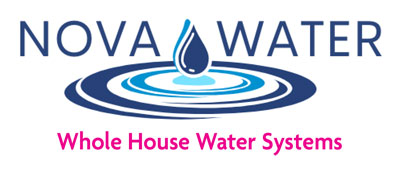PFAS, short for Per- and polyfluoroalkyl substances, are often referred to as “forever chemicals”. These compounds have been in use since the 1940s and can be found in various everyday products such as non-stick cookware, food packaging, stain repellents, water repellents, and firefighting foams. However, in recent years, concerns have been raised about the potential health risks associated with PFAS.
This article aims to provide you with a comprehensive understanding of carbon filters and their role in removing PFAS from water.
What are Carbon Filters?
Carbon filters are commonly used in household or industrial water filtration systems. These filters contain activated carbon, a material that is treated to have a high surface area for adsorption. Adsorption is the process of binding particles and molecules onto the surface of a solid material.
Activated carbon is highly porous, which allows it to trap and remove impurities from water as it passes through the filter. Carbon filters are efficient in removing organic compounds, such as PFAS, from water.
How Do Carbon Filters Remove PFAS?
PFAS are resistant to degradation, which means they can accumulate in the environment and in our bodies over time. This is why it is essential to have effective methods for removing them from water sources.
Carbon filters work by adsorbing PFAS onto their surface as water passes through. The high surface area of activated carbon allows for a greater amount of PFAS to be trapped and removed from the water. Additionally, carbon filters can also remove other contaminants such as chlorine, sediment, and heavy metals.
Maintaining Carbon Filters
To ensure the effectiveness of carbon filters in removing PFAS from water, it is essential to properly maintain them. This includes regularly replacing the filter media and following the manufacturer’s instructions for cleaning and backwashing.
Benefits of Using Carbon Filters for Removing PFAS
Carbon filters have several advantages when it comes to removing PFAS from water. First, they are a cost-effective solution compared to other methods such as reverse osmosis or ion exchange. Carbon filters are also easy to install and maintain, making them a convenient option for both households and industrial settings.
Furthermore, carbon filters do not use any chemicals in the filtration process, making them a safer and more environmentally friendly option.
Additional Tips for Reducing PFAS Exposure
While carbon filters are an effective method for removing PFAS from water sources, there are also other steps you can take to reduce your exposure to these chemicals. These include:
- Avoid using non-stick cookware or food packaging that contains PFAS
- Test your well water for PFAS
- Use a certified water filter for drinking and cooking
- Dispose of products containing PFAS properly, following the manufacturer’s instructions
Conclusion
In today’s world, it is crucial to have effective methods for removing contaminants from our water sources. Carbon filters are a reliable and efficient way to remove PFAS from water. With Nova Water’s specially designed carbon filters, you can ensure that your drinking water is safe and free from harmful contaminants. Contact us today and take the first step towards clean water!

